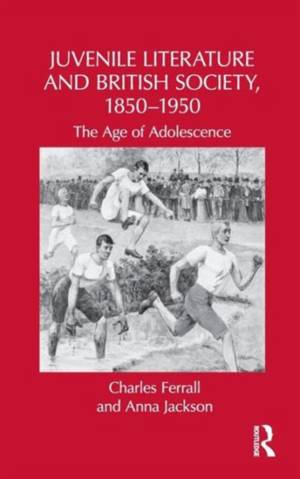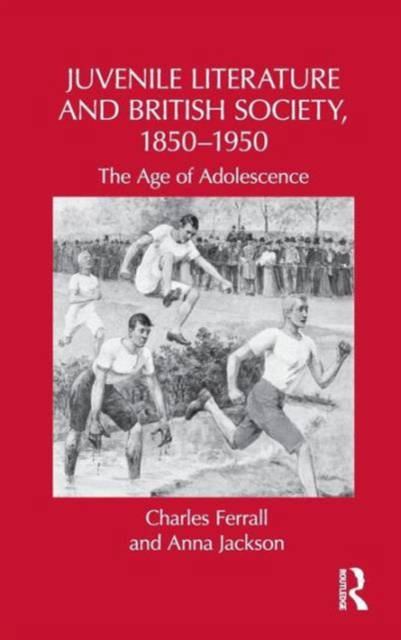
- Afhalen na 1 uur in een winkel met voorraad
- Gratis thuislevering in België vanaf € 30
- Ruim aanbod met 7 miljoen producten
- Afhalen na 1 uur in een winkel met voorraad
- Gratis thuislevering in België vanaf € 30
- Ruim aanbod met 7 miljoen producten
Juvenile Literature and British Society, 1850-1950
The Age of Adolescence
Charles Ferrall, Anna JacksonOmschrijving
In this study, Charles Ferrall and Anna Jackson argue that the Victorians created a concept of adolescence that lasted into the twentieth century and yet is strikingly at odds with post-Second World War notions of adolescence as a period of "storm and stress." In the enormously popular "juvenile" literature of the period, primarily boys' and girls' own adventure and school stories, adolescence is acknowledged as a time of sexual awareness and yet also of a romantic idealism that is lost with marriage, a time when boys and girls acquire adult duties and responsibilities and yet have not had to assume the roles of breadwinner or household manager. The book reveals a concept of adolescence as significant as the Romantic cult of childhood that preceded it, which will be of interest to scholars of both children's literature and Victorian culture.
Specificaties
Betrokkenen
- Auteur(s):
- Uitgeverij:
Inhoud
- Aantal bladzijden:
- 194
- Taal:
- Engels
- Reeks:
Eigenschappen
- Productcode (EAN):
- 9780415964760
- Verschijningsdatum:
- 1/09/2009
- Uitvoering:
- Hardcover
- Formaat:
- Genaaid
- Afmetingen:
- 152 mm x 229 mm
- Gewicht:
- 449 g

Alleen bij Standaard Boekhandel
Beoordelingen
We publiceren alleen reviews die voldoen aan de voorwaarden voor reviews. Bekijk onze voorwaarden voor reviews.











